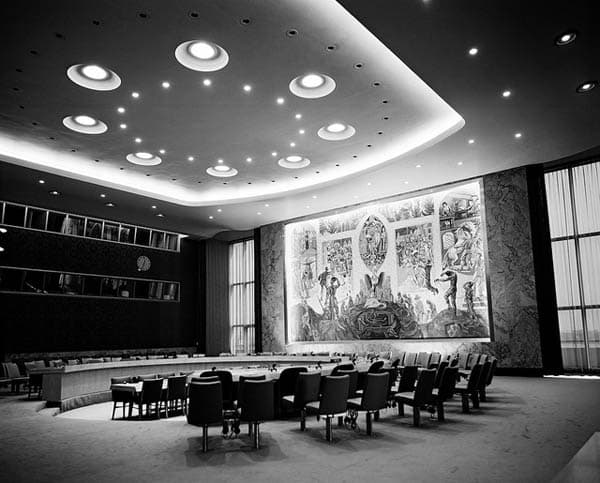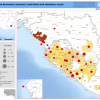
Periodically, more or less every 10 years, Spain gears itself for the enormous effort to get itself elected by the UN General Assembly a non-permanent member of the Security Council for two years. Planning for the occasion was initiated by the previous Spanish government, under José Luis Rodríguez Zapatero, which submitted its application in 2005. It is now the task of the present government, under Mariano Rajoy, to complete the process in the coming weeks. But not only have these two governments been involved: both Felipe VI –who is to appear before the General Assembly– and his predecessor, King Juan Carlos, have made their own contributions. This is a major and sustained diplomatic effort. The campaign, conducted at the UN headquarters in New York, in foreign capitals and at international forums, began in 2011 and is reaching its culmination shortly, supported by Spain’s contributions to international affairs in recent years and based on its vision of the future.
Is it really worth the effort? Overall, what a country can do in the Security Council depends on its overall foreign policy. By gaining a seat at the Security Council, and having previously promoted its candidacy, a country can fully present its foreign policy, although to do so effectively it has to have an active and comprehensive policy. In this respect, however, it is not a completely free agent, as it is conditioned by its membership of the EU and NATO. Nevertheless, it does have more freedom of action in issues that are not constrained by a definite EU policy, such as Israel and Palestine, and Peacekeeping Operations. And it has ample scope with what used to be called the Third World. Certainly, a country with a seat on the Security Council becomes more interesting to others and can develop a greater degree of intimacy with the Council’s other members.
Furthermore, a great deal of information passes through the Security Council. As commented by Spain’s former representative Juan Antonio Yáñez, ‘It is a unique source of information’ ––although there are admittedly more privileged channels of information that are exclusive to the five permanent members (China, France, Russia, the UK and the US)–. From its position on the Security Council, Spain would in any case have to report (along with France and the UK) to the other EU states at weekly meetings or ad hoc reunions in the event of emergencies.
While there is a predictable agenda, the Security Council is also subject to the unexpected. Should Spain be elected to the Council, it will be involved in something that is foreseeable: the international coalition being assembled by the US to attack the Islamic State in Iraq and Syria (ISIS), which is under threat of an expected veto –to materialise before the next session (2015/16)– by Russia and perhaps China. Vetoes have lately hobbled the Council on a number of occasions, preventing it from adopting Resolutions and limiting its action to statements of its rotating presidency. Fortunately, it has at least managed to approve a Resolution on combatting the Ebola epidemic.
Sitting on the Council also implies obligations. Some countries are often reluctant to take on the responsibility. Mexico is an example, as it is always wary of having to face up to its powerful US neighbour, a permanent member with the power of veto. This occurred on the eve of the Iraq invasion in 2003. Other countries, like Brazil and Germany, seek a permanent seat, want to be present as often as possible and do not want to wait 10 years to be on the Council again. In one case, Saudi Arabia was elected in 2013 but resigned 24 hours later to be replaced by Jordan.
Except for its failed but bold first attempt in 1956, when it had just become a member of the UN, Spain has always been successful in gaining a seat on the Security Council when it has presented its candidacy –in 1968, 1980, 1992 and 2002–, but this time it will be fighting for one of the two seats up for grabs against New Zealand and Turkey.


